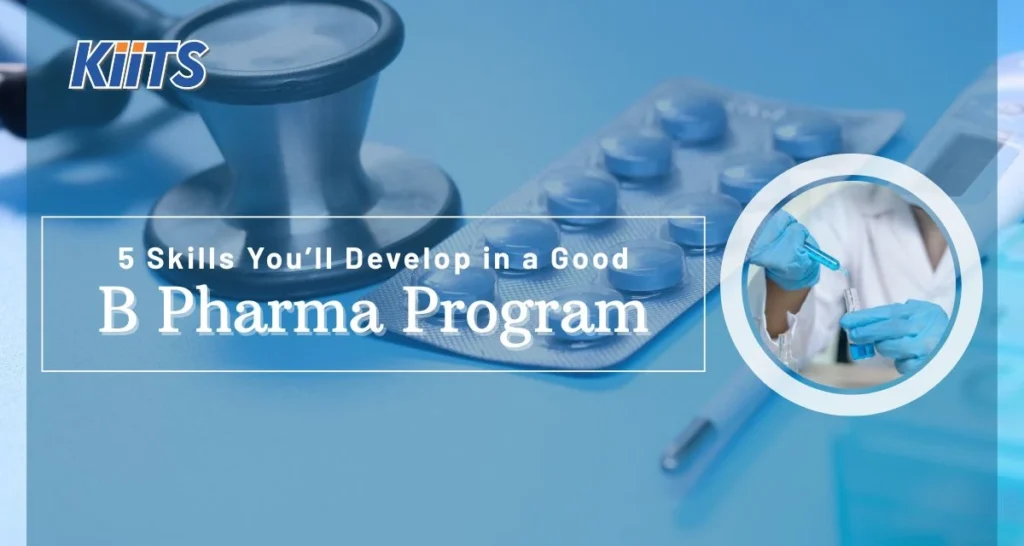What is D.Pharma ?
Doctor of Pharmacy (D Pharma course) is a bachelor’s degree in pharmacy, It is designed to provide knowledge and skills related to chemical sciences, medicine, and drug therapy. A graduate can work as a registered pharmacist in a hospital pharmacy or community pharmacy (wholesale or retail-medical store/chemists & druggists). Because it is a prerequisite for working in the pharmacy field, all prescription medication dispensing must be done under the direct supervision of a pharmacist. The pharmaceutical industry offers a variety of other opportunities. Applicants with a pharmacy diploma are admitted to the second year of the B.Pharm programme.
Here are some important facts about D.Pharma:
Period:
The D Pharma course normally lasts two years, though this can change based on the country and educational establishment.
Education:
The D Pharmacy admission covers a variety of pharmaceutical topics including:
Pharmacology: D Pharma course includes organic chemistry, the study of drugs related to organic chemistry and pharmaceuticals.
Pharmacology: Understanding the effects of drugs on organisms, including therapeutic and toxic effects.
Pharmacognosy: The study of natural medicines derived from plants, animals, and minerals.
Pharmaceuticals: Knowledge of the production, processing, and quality control of pharmaceutical products. Hospital and medical pharmacy: use of hospital pharmacies, patient care and medication management.
Biology: Fundamentals of Biological Methods in Pharmacology.

Eligibility Criteria:
The D pharmacy admission eligibility criteria:
- Completion of 10+2 (or equivalent) with Physics, Chemistry, and either Biology or Mathematics as subjects.
- D pharma course requires minimum aggregate marks and it varies by different institutions.
Other research:
After the D.Pharma course, students can take other courses such as:
- Pharma: Bachelor of Pharmacy, 4-year course.
- Pharma: Master of Pharmacy specializes in various branches of pharmacy.
D: Doctor of Pharmacy, Doctorate of Pharmacy.
Career Prospective:
D.Pharma allows one to work as a registered pharmacist in India.
Those who complete the D.Pharma Program can find work as pharmacists in private and public hospitals.
People can work in clinics, NGOs, and health centers.
The program also allows people to find entry-level jobs in the pharmaceutical industry in various fields such as process control, manufacturing, and quality control.
A person may act as a medical representative. Although there is pressure to achieve goals in this profession, motivation and other factors make this profession pay well.
A person with an entrepreneurial spirit can open his or her pharmacy, general store, or surgical supply store.
There is also a learning curve after the course. After completing the Pharmacy Diploma program, you can apply directly to the second year of the Bachelor of Pharmacy (B. Pharma). Postgraduate Diploma in Law. It allows someone to obtain a license to practice as an intellectual property lawyer.
Skills developed:
Pharmacy students develop skills such as:
Pharmacology and side effects of drugs.
Understanding Drug Regulation and Behaviour.
Communication and patient advice skills.
Critical thinking and problem-solving in the pharmaceutical industry.
The Importance of Ethics in D.Pharma Education.
Ethics play an important role in the study and practice of pharmacy, including the D. Pharm program. Here’s why ethics is important in pharmacy education:
Patient care and safety:
Patient trust: good practices that build trust between pharmacists and patients. Patients trust pharmacists to provide accurate information and manage medications effectively.
Confidentiality: Pharmacists must adhere to strict confidentiality standards while respecting confidentiality and confidentiality to protect patient information.
Professional Integrity:
Integrity: Pharmacists are expected to maintain integrity in all interactions, from dispensing medications to research reporting.
Avoiding Conflicts of Interest: The Ethics course teaches pharmacists to identify and resolve conflicts of interest, ensuring that decisions are based on the patient’s well-being and not personal interests.
Compatibility and control:
Legal Compliance: Public education emphasizes compliance with laws and regulations governing the practice of pharmacy and ensures that pharmacists operate within the legal framework.
Code of Conduct: Pharmacists are guided by ethical principles that reflect their professional responsibilities and guide their behavior in difficult situations.
Research:
Research Ethics: Ethics in pharmaceutical research ensures that research is conducted ethically and innovation, with respect for people and with scientific integrity.
Innovation and responsibility: Ethical considerations leading to the development and introduction of new drugs and treatments, safety and effectiveness.
Public health and advocacy:
Public Health Advocacy: Pharmacists advocate for public health initiatives, such as vaccination programs and safe medication use, based on ethical principles.
Access to medicines: Ethical considerations include promoting equitable access to medicines and ensuring that access does not compromise quality.

Training and Professional Development:
Ethics: D. The pharmacy program integrates ethics education to prepare students for ethical issues they may encounter in practice.
Continuing Education: Pharmacists participate in continuing education to stay current on ethical standards and issues arising in pharmacy practice.
Consequences of moral violence:
Professional Consequences: Ethics violations may result in sanctions from relevant authorities, which may affect licensing and recognition.
Harm to patients: Malpractice can cause harm to patients, jeopardizing their quality of life and their trust in healthcare professionals.
Conclusion:
In summary, it can be stated that the ethics of D.Pharma education is an integral part of promoting professional integrity, ensuring patient safety and promoting public trust in pharmacy. By fostering ethical values early in education, this program prepares pharmacists to navigate complex ethical issues and maintain high standards of care throughout their careers.
FAQS:
Q1. Why is ethics important in D.Pharma education?
A1. Because it guides pharmacists to make ethical decisions that prioritize patient care and safety. They ensure that pharmacists maintain professional integrity, respect patient confidentiality, and adhere to legal and regulatory standards.
Q2. How do ethics affect patient care in pharmacy?
A2. Ethics ensure that pharmacists provide accurate information, dispense medications responsibly, and prioritize patient well-being. Patient trust in pharmacies is based on ethical behavior, which is essential for effective health care.
Q3. What ethical issues do pharmacists usually face?
A3. Pharmacists often face ethical issues such as balancing patient autonomy and benefit, ensuring confidentiality in sensitive situations, managing conflicts of interest, and dealing with issues related to medication errors or adverse events.
Q4. How is ethical training useful for pharmacists?
A5. Ethical training prepares pharmacists to handle complex ethical situations professionally and honestly. This gives them the knowledge and skills to make ethical decisions that meet the requirements of the law and the Code of Ethics.
Q5. What role do ethical guidelines play in pharmacy operations?
A5. Ethical guidelines provide pharmacists with a framework for ethical decision-making and behavior. They describe professional responsibilities, promote patient-centered care, and guide pharmacies in maintaining ethical standards in all aspects of their operations.
Q6. How does ethics in D.Pharma education promote public trust in pharmacists?
A6. Ethically a pharmacy professional understands and builds public trust by ensuring that pharmacists behave ethically, respect patients’ rights and prioritize patient safety. Adherence to ethical standards strengthens the reputation of pharmacists as trusted healthcare professionals.








